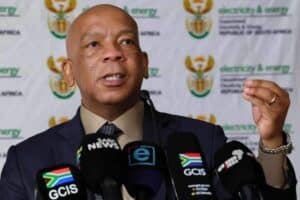There are numerous critical areas where citizens are yearning for clarity, assurance, and tangible plans for progress.

In the anticipation-laden atmosphere of an election year, the eyes of South Africans are fixed intently on the forthcoming State of the Nation Address (Sona) to be delivered by President Cyril Ramaphosa later this evening.
As the ruling party prepares to outline its vision and priorities for the nation, citizens across the country find themselves eagerly awaiting insights into the direction the ANC intends to steer the country in the coming months.
From economic recovery and job creation to social welfare and healthcare, there are numerous critical areas where citizens are yearning for clarity, assurance, and tangible plans for progress.
Here are issues South Africans will be keeping an ear out for when the president addresses the nation:
Load shedding
Last Sona, it was said that 25% of President Ramaphosa’s address focused on energy creation. There were seven key promises he made.
He promised small businesses that the government would help supply solar equipment and generators to help keep them running smoothly.
He also said that they would be appointing a Minister of Electricity to better coordinate the country’s efforts in its response to the energy crisis.
ALSO READ: Here’s what was promised in the last Sona, and what has changed
Government would initiate immediate measures to improve the performance of Eskom’s existing power stations and stabilise the longer-term energy system.
He also said that government would be rolling out solar panels and investing in new transmission lines and substations, especially in areas of high concern.
Ramaphosa said government would adjust the bounce-back loan scheme to allow small businesses to invest in solar equipment.
In line with this, he said that they would also amend the bounce-back loan scheme requirements to enable banks and development finance institutions to accelerate the leasing of solar panels to their clients.
According to KPMG economist, Frank Blackmore, the liberalisation of the energy market that came through in the Sona in the solar speech was thereafter clarified during the budget.
ALSO READ: Last wishes for Sona tonight: less corruption, more power
“We all know what the impact has been on rooftop solar, and the ability of businesses to produce or to generate their own power, which has been very beneficial to the economy of the last year and helped the country in reducing the levels of load shedding to the current levels we are experiencing, down from the highs that we were experiencing a year or so ago,” he said.
Blackmore said this is the type of pragmatism he wanted to see more of in this year’s Sona.
Eskom – debt and unbundling
Last year, the president said that National Treasury was finalising a solution to Eskom’s R400 billion debt burden in a manner that was equitable and fair to all stakeholders.
Later that year, government proposed to provide Eskom with debt relief amounting to R254 billion.
This was to take the form of advances of R78 billion in 2023/2024, R66 billion in 2024/2025 and R40 billion in 2025/2026.
South Africans will wait to hear if there has been any amendment to these amounts or the payment arrangement.
South Africans are also waiting to hear government’s update on the progress of unbundling of Eskom. The president, in his 2019 Sona, said the parastatal would be unbundled into three departments.
The process of unbundling only truly kicked off in April last year.
But, Electricity Minister, Kgosientsho Ramokgopa, said his focus does not lie in unbundling the power utility. He said, while it holds significance for long-term goals of ensuring energy security, it is not a priority.
NHI Bill
The controversial National Health Insurance (NHI) Bill will also be a key focus for South Africans at this year’s Sona.
Especially since Business groups BUSA and B4SA have urged President Ramaphosa to check if the NHI Bill follows the constitution before signing it into law as it is now.
ALSO READ: Sona: Hope that Ramaphosa will refrain from sloganeering
Last year, the National Assembly and the National Council of Provinces reviewed the bill and forwarded it to the president for approval to become law.
Rail and ports
Last year, Ramaphosa promised to address port and rail issues after the country’s port and rail network suffered from many years of underinvestment, lack of maintenance, criminal activity and inefficiency.
He said that government adopted the National Rail Policy to guide the modernisation and reform of the rail sector, providing for third-party access to our rail network.
But, mining companies have said, that despite the Freight Logistics Roadmap they continue to report an increased reliance on trucks rather than trains.
In his newsletter last month, Ramaphosa said: “Working together with the private sector, we are turning the situation around, guided by the Freight Logistics Roadmap that was crafted by Transnet, government and social partners. The roadmap outlines a clear set of actions to stabilise and improve Transnet’s performance in the short term and to fundamentally reform the logistics system in the long term.”






